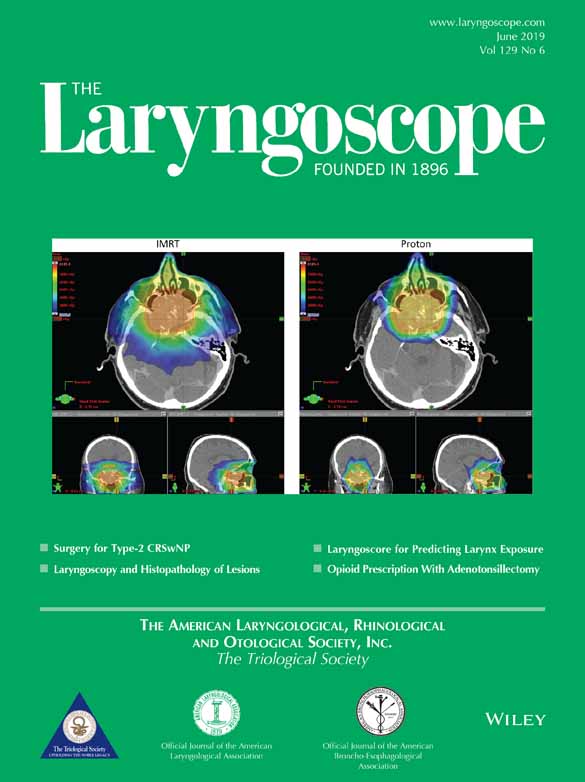Regionalization of head and neck cancer surgery may fragment care and impact overall survival
Editor's Note: This Manuscript was accepted for publication on June 20, 2018.
A portion of this data was presented at the 2018 American Head and Neck Society Annual Meeting, National Harbor, Maryland, U.S.A., April 18–19, 2018.
The authors have no funding, financial relationships, or conflicts of interest to disclose.
Abstract
Objective
While surgical treatment concentrates in tertiary care centers, an increasing number of patients request postoperative radiation therapy (PORT) at a separate center closer to home. Our goal was to determine whether fragmentation of surgery and PORT were associated with poorer oncologic outcomes.
Methods
We conducted a retrospective cohort study of 32,813 head and neck cancer patients treated with surgery and PORT in the National Cancer Data Base. Our main outcome was overall survival (OS). Statistical analysis included χ2, t tests, Kaplan-Meier, and Cox regression analysis.
Results
Fragmented care was independently associated with increased risk of mortality (hazard ratio [HR], 1.08; 95% confidence interval [CI], 1.03–1.13), whereas distance to surgical center > 30 miles (HR, 0.92; 95% CI, 0.87–0.97) was associated with improved OS. On subgroup analysis, fragmented care was associated with decreased OS only among patients who had surgery at an academic center (HR, 1.10; 95% CI, 1.04–1.17). Within academic centers, greater distance from the surgical center was associated with improved survival only in patients who received PORT at the same facility (HR, 0.85; 95% CI, 0.78–0.93), but this effect was negated among patients who had fragmented care (HR, 0.97; 95% CI, 0.85–1.11).
Conclusion
When cancer care is fragmented, there is no longer a survival benefit for patients to travel for surgical care at academic medical centers. Fragmented care is independently associated with worse survival, and further research is needed to evaluate the causes of this difference in survival to determine if improving care coordination can mitigate this survival difference.
Level of Evidence
NA
Laryngoscope, 129:1413–1419, 2019




